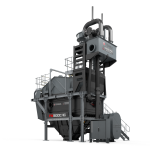Kaspersky, a global cyber security company, has published the results of its ‘Connecting the future of business’ study, revealing that 55% of surveyed companies across the Middle East, Turkiye and Africa (META) region have implemented artificial intelligence (AI) while 44% are making use of Internet of Things (IoT)
The study has been produced to help companies stay ahead of the changes interconnected technologies bring as well as how cyber security must develop to adapt to this phenomenon. The company surveyed 560 senior IT security leaders from North America, Latin America, Europe, Middle East, Turkiye, Africa and Asia-Pacific with more than 50% saying they have implemented some form of AI and IoT.
In the META region specifically, beyond the 55% already using AI, 34% stated they are planning to do so while 45% said they are considering using IoT as well. Further, data spaces are used by 34% of businesses from the META region (with 45% looking to in the future) while 18% make use of other interconnected technologies (such as digital twins, augmented reality (AR), virtual reality (VR), web 3.0, 6G and converged cloud networks) but 80% plan to delve into this at some stage.
Such a changing environment also brings perils, most notably in the form of increased cyber security exposure. According to the study, 18% of META respondents think AI is very difficult or extremely difficult to protect and only 9% of AI users think their companies are fully protected (only 14% of IoT users think so as well). Other technologies prove more challenging, with around 37-38% of META respondents believing AR/VR and converged cloud networks are difficult to secure against cyber threats.
“Interconnected technologies bring immense business opportunities but they also usher in a new era of vulnerability to serious cyber threats,” remarked Ivan Vassunov, VP, corporate products at Kaspersky. “With an increasing amount of data being collected and transmitted, cyber security measures must be strengthened. Enterprises must protect critical assets, build customer confidence amid the expanding interconnected landscape, and ensure there are adequate resources allocated to cyber security so they can use the new solutions to combat the incoming challenges of interconnected tech. Businesses integrating AI and IoT into their infrastructure need to protect it with container security and extended detection and response solutions, to detect cyber threats at early stages and provide effective defence.”
To ensure organisations are prepared to protect interconnected technologies, Kaspersky has recommended four effective measures including adopting secure-by-design principles; training and upskilling the workforce; upgrading cyber security solutions’ and meeting regulations to avoid legal problems.
This is far from the first warning Kaspersky has issued around the rising threat of cyber crime, having previously detailed the evolving nature of such threats which are becoming more diverse and sophisticated.















